第1章
"I'm going up to the village," I told Dorinda, taking my cap from the hook behind the dining-room door.
"What for?" asked Dorinda, pushing me to one side and reaching for the dust-cloth, which also was behind the door.
"Oh, just for the walk," I answered, carelessly.
"Um-hm," observed Dorinda.
"Um-hm" is, I believe, good Scotch for "Yes." I have read that it is, somewhere--in one of Barrie's yarns, I think.I had never been in Scotland, or much of anywhere else, except the city I was born in, and my college town, and Boston--and Cape Cod."Um-hm" meant yes on the Cape, too, except when Dorinda said it; then it might mean almost anything.When Mother asked her to lower the window shade in the bed-room she said "Um-hm" and lowered it.And, five minutes later, when Lute came in, loaded to the guards with explanations as to why he had forgotten to clean the fish for dinner, she said it again.And the Equator and the North Pole are no nearer alike, so far as temperature is concerned, than those two "Um-hms." And between them she had others, expressing all degrees from frigid to semi-torrid.
Her "Um-hm" this time was somewhere along the northern edge of Labrador.
"It's a good morning for a walk," I said.
"Um-hm," repeated Dorinda, crossing over to Greenland, so to speak.
I opened the outside door.The warm spring sunshine, pouring in, was a pleasant contrast and made me forget, for the moment, the glacier at my back.Come to think of it, "glacier" isn't a good word; glaciers move slowly and that wasn't Dorinda's way.
"What are you going to do?" I asked.
"Work," snapped Dorinda, unfurling the dust cloth."It's a good mornin' for that, too."I went out, turned the corner of the house and found Lute sound asleep on the wash bench behind the kitchen.His full name was Luther Millard Filmore Rogers, and he was Dorinda's husband by law, and the burden which Providence, or hard luck, had ordered her to carry through this vale of tears.She was a good Methodist and there was no doubt in her mind that Providence was responsible.
When she rose to testify in prayer-meeting she always mentioned her "cross" and everybody knew that the cross was Luther.She carried him, but it is no more than fair to say that she didn't provide him with cushions.She never let him forget that he was a steerage passenger.However, Lute was well upholstered with philosophy, of a kind, and, so long as he didn't have to work his passage, was happy, even if the voyage was a rather rough one.
Just now he was supposed to be raking the back yard, but the rake was between his knees, his head was tipped back against the shingled wall of the kitchen, and he was sleeping, with the sunshine illuminating his open mouth, "for all the world like a lamp in a potato cellar," as his wife had said the last time she caught him in this position.She went on to say that it was a pity he wouldn't stand on his head when he slept."Then I could see if your skull was as holler as I believe it is," she told him.
Lute heard me as I passed him and woke up.The "potato cellar"closed with a snap and he seized the rake handles with both hands.
"I was takin' a sort of observation," he explained hurriedly.
"Figgerin' whether I'd better begin here or over by the barn.Oh, it's you, Roscoe, is it! Land sakes! I thought first 'twas Dorindy.Where you bound?""Up to the village," I said.
"Ain't goin' to the post-office, be you?""I may; I don't know."
Lute sighed."I was kind of cal'latin' to go there myself," he observed, regretfully."Thoph Newcomb and Cap'n Jed Dean and the rest of us was havin' a talk on politics last night up there and 'twas mighty interestin'.Old Dean had Thoph pretty well out of the race when I hauled alongside, but when I got into the argument 'twas different.'What's goin' to become of the laborin' men of this country if you have free trade?' I says.Dean had to give in that he didn't know.'Might have to let their wives support 'em,'
he says, pompous as ever.'That would be a calamity, wouldn't it, Lute?' That wasn't no answer, of course.But you can't expect sense of a Democrat.I left him fumin' and come away.I've thought of a lot more questions to ask him since and I was hopin' Icould get at him this mornin'.But no! Dorindy's sot on havin'
this yard raked, so I s'pose I've got to do it."He had dropped the rake, but now he leaned over, picked it up, and rose from the wash bench.
"I s'pose I've got to do it," he repeated, "unless," hopefully, "you want me to run up to the village and do your errand for you.""No; I hadn't any errand."
"Well, then I s'pose I'd better start in.Unless there was somethin' else you'd ruther I'd do to-day.If there was I could do this to-morrer.""To-morrow would have one advantage: there would be more to rake then.However, judging by Dorinda's temper this morning, I think, perhaps, you had better do it to-day.""What's Dorindy doin'?"
"She is dusting the dining-room."
"I'll bet you! And she dusted it yesterday and the day afore.Do you know--" Lute sat down again on the bench--"sometimes I get real worried about her.""No! Do you?"
"Yes, I do.I think she works too hard.Seems's if sometimes it had kind of struck to her brains--work, I mean.She don't think of nothin' else.Now take the dustin', for instance.Dustin's all right; I believe in dustin' things.But I don't believe in wearin'
'em out dustin' 'em.That ain't sense, is it?""It doesn't seem like it, that's a fact.""You bet it don't! And it ain't good religion, neither.Now take--well, take this yard, for instance.What is it that I'm slavin'